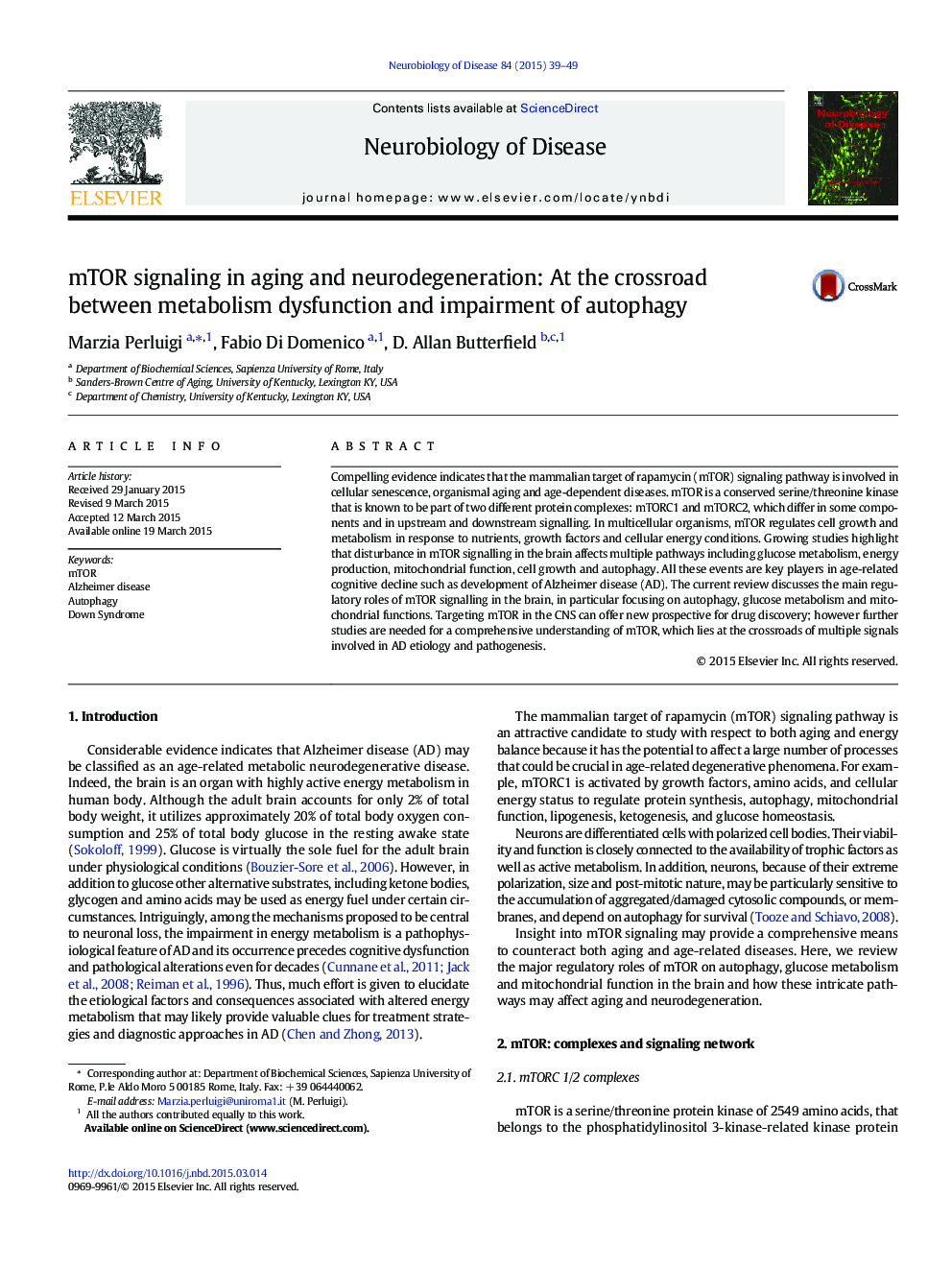| کد مقاله | کد نشریه | سال انتشار | مقاله انگلیسی | نسخه تمام متن |
|---|---|---|---|---|
| 3069255 | 1580639 | 2015 | 11 صفحه PDF | دانلود رایگان |

Compelling evidence indicates that the mammalian target of rapamycin (mTOR) signaling pathway is involved in cellular senescence, organismal aging and age-dependent diseases. mTOR is a conserved serine/threonine kinase that is known to be part of two different protein complexes: mTORC1 and mTORC2, which differ in some components and in upstream and downstream signalling. In multicellular organisms, mTOR regulates cell growth and metabolism in response to nutrients, growth factors and cellular energy conditions. Growing studies highlight that disturbance in mTOR signalling in the brain affects multiple pathways including glucose metabolism, energy production, mitochondrial function, cell growth and autophagy. All these events are key players in age-related cognitive decline such as development of Alzheimer disease (AD). The current review discusses the main regulatory roles of mTOR signalling in the brain, in particular focusing on autophagy, glucose metabolism and mitochondrial functions. Targeting mTOR in the CNS can offer new prospective for drug discovery; however further studies are needed for a comprehensive understanding of mTOR, which lies at the crossroads of multiple signals involved in AD etiology and pathogenesis.
Journal: Neurobiology of Disease - Volume 84, December 2015, Pages 39–49